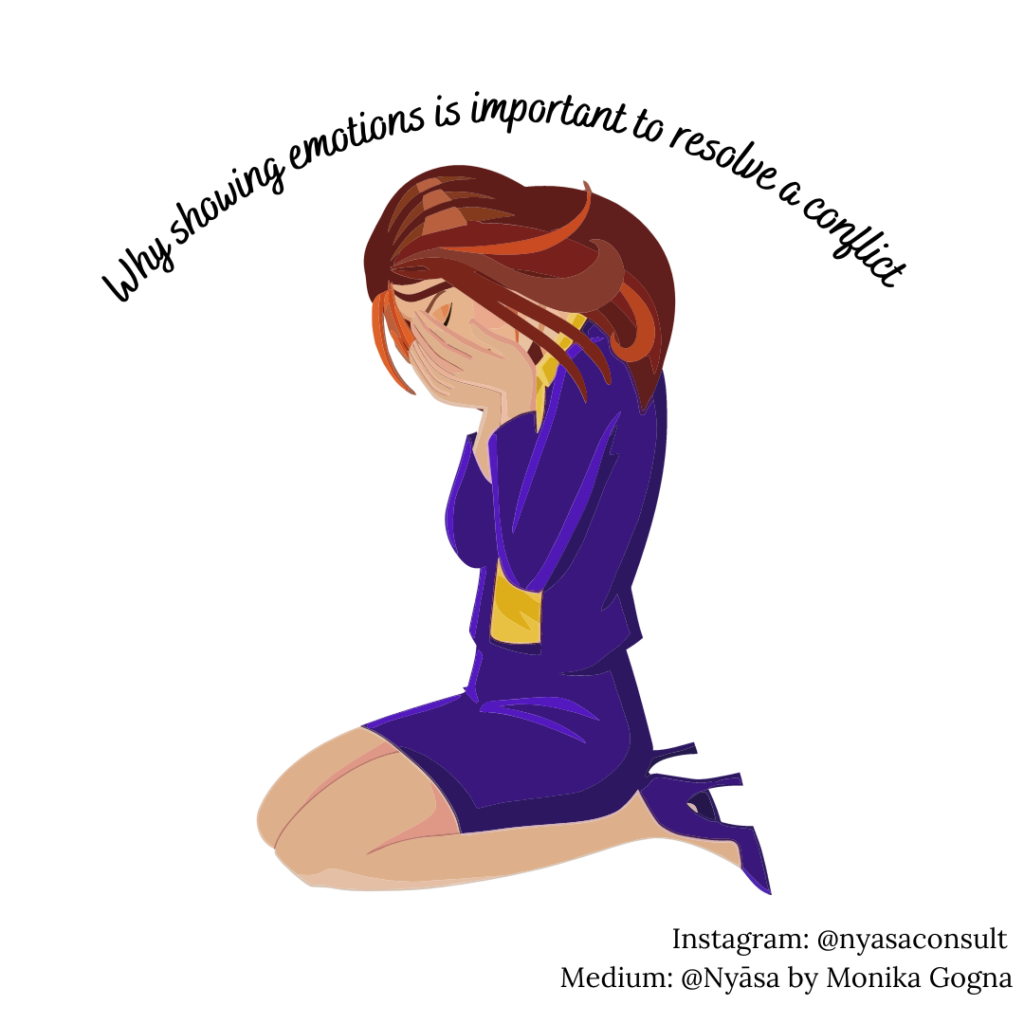Crying at work, in front of colleagues and supervisors, is a big taboo. There is a fear that you will be labeled as ‘weak’, someone who does not have his/her emotions under control. Explaining your emotions publicly to your colleagues is often very complicated and it makes one vulnerable in a way that they do not want to be. But what if your emotions run so high that you feel you can’t contain them anymore? And what if for instance there is so much tension between you and a superior (e.g., manager) that it can only be resolved by involving a third party, like a mediator? How do you deal with all those emotions?

‘I’m not going to cry in front of my manager and colleagues’
There is relief
But what if just the opposite turns out to be true? What if showing emotions means that the other person can see what an emotionally burdensome/conflict situation does to you? That it keeps you awake, that you no longer enjoy going to work and that it even affects your private life? In a mediation, the parties often have a completely wrong image of each other and of what the situation they both find themselves in is doing to them. Precisely by showing emotions, the wall that has arisen between the parties breaks down little by little. It often gives a sense of relief when parties dare to be themselves and show how they really feel in such a situation.
Space for each other’s story
It is my job as a mediator to ensure that the crumbling of that wall happens as gently as possible and under the safest conditions. You can only dare to be yourself if you feel that you are in a safe space/non-judgmental to do so. Intake/the first session is conducted separately with both parties. During the intake, which is often quite intensive, I get a clear picture of how your story — and therefore your perception of reality — works. After I have spoken to both parties, a joint conversation takes place for the first time. I am already aware of the reason for the high wall that has arisen between the parties and by asking the right questions I let my clients go step by step to grab those stones themselves and give each other space to tear down the wall one stone at a time. And yes, sometimes crying is part of that. It often gives the parties much more space and provides enormous relief. When one cries, the other often cries too. Because both often suffer greatly from the situation, they are in.
Curious what I can do for you? Do you have a conflict in the family or the workspace, please get in touch with me at monika@nyasa.solution for more information about mediation/conflict resolution.
